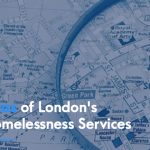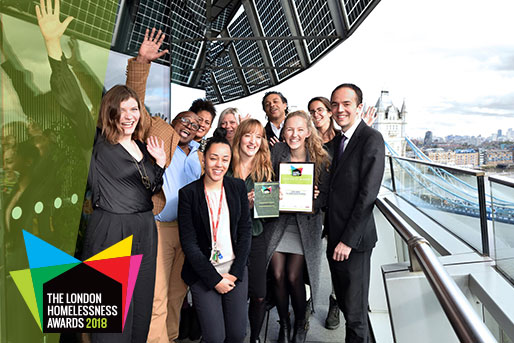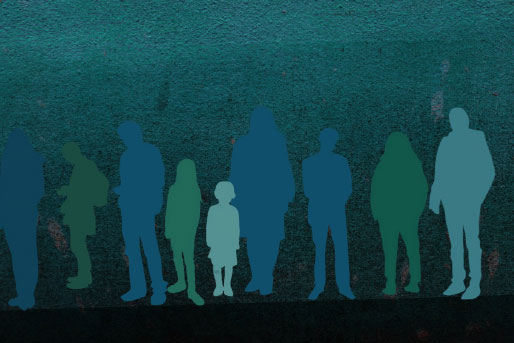Safer London were a winner of the London Homelessness Awards 2018 for their Pan London Housing Reciprocal (PLHR), an innovative partnership scheme that allows people fleeing domestic abuse and other violence to move to a safe area without losing their tenancy rights. We asked Clementine Traynard, Senior Domestic Abuse, Housing and Policy Officer at Safer London to tell us more about the work they do. She focuses on the support the project offers to young people leaving care.
As part of the Pan-London Housing Reciprocal Team at Safer London, I’m delighted that the project won one of the London Homelessness Awards this year. This recognition helps us to raise awareness about the scheme and encourages housing providers to work with each other to support their tenants at risk of abuse.
With the award we’re hoping to consolidate the pathway and make it more accessible to a wide range of people. For example we are currently working on improving access to this pathway for young people leaving care.
At a workshop we recently ran, our reciprocal Housing partners told us how difficult it is to house young people who are leaving local authority care. This is especially challenging when care leavers need social housing but are not safe to stay in the borough.
Many children enter the care system because they have been abused or neglected. These experiences can leave children with complex emotional and mental health needs. This in turn can increase their vulnerability to further abuse, for example those in care are often vulnerable to exploitation.
Our colleagues at Safer London work with young people exploited by gangs. They have seen that young people leaving care are regularly targeted by gangs for grooming. This can often involve the young person being forced to hold or sell drugs or weapons, their flat being taken over by gangs or ‘cuckooed’, and sexual exploitation.
Care leavers are also particularly vulnerable to homelessness. One third of care leavers become homeless in the first two years after they leave care and 25% of homeless people have been in care at some point in their lives.
The Pan-London Housing Reciprocal is an opportunity for local authorities to support the vulnerable young people to whom they owe a duty of care. Local authority partners told us:
Care leavers [reciprocal] would be beneficial. As a local authority we often receive referrals from other boroughs but this is captured manually
We accept reciprocals but these are often direct swaps within our existing quota. It would be good to have this process managed through Safer London with maybe a percentage of the quota put towards the scheme, keeping it transparent.
The Pan-London Housing Reciprocal can support care leavers to access long term accommodation in a safe place. Through using this pathway the housing sector can work together to prevent care leavers from experiencing further harm and abuse, and avoid homelessness.
For more information about the 2018 winners, and to register for entry into the 2019 awards, please go to www.lhawards.org.uk




